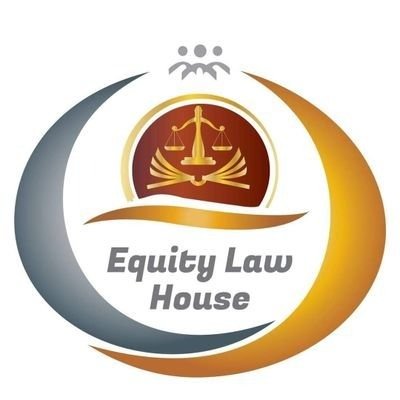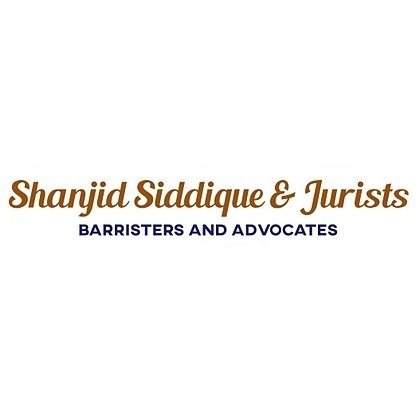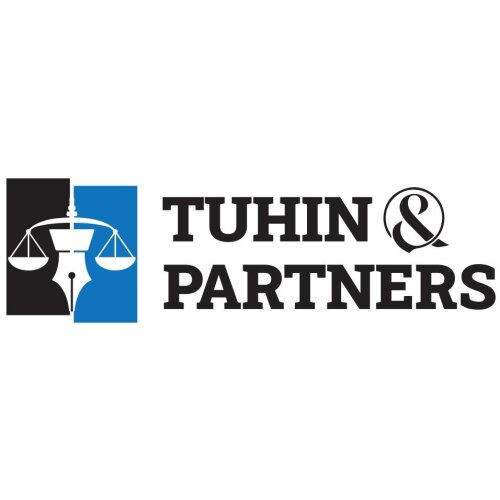Best Civil & Human Rights Lawyers in Dhaka
Share your needs with us, get contacted by law firms.
Free. Takes 2 min.
List of the best lawyers in Dhaka, Bangladesh
Bangladesh Civil & Human Rights Legal Questions answered by Lawyers
Browse our 1 legal question about Civil & Human Rights in Bangladesh and read the lawyer answers, or ask your own questions for free.
- Urgent passport creation/recovery
- Hello, I'm urgently seeking legal guidance for my friend in Dhaka, who needs to secure their passport under dangerous circumstances. Their situation: They are trying to rebuild their life after escaping their abusive father, who previously confiscated their passport to control them. A critical step for their future is sitting... Read more →
-
Lawyer answer by Tobarrak Law Chamber
In such a situation, the matter should be handled through legal and administrative safeguards prioritising personal safety. Your friend may immediately file a General Diary (GD) or Police Report documenting the abuse and the confiscation of the passport, which can...
Read full answer
About Civil & Human Rights Law in Dhaka, Bangladesh
In Dhaka, Bangladesh, civil and human rights law encompasses a broad array of rights and liberties guaranteed to individuals under the Constitution of Bangladesh and international human rights standards. These rights include, but are not limited to, the right to life, freedom of speech, freedom from discrimination, and protection from unlawful detention. The legal framework is primarily influenced by the Constitution, statutory laws, and international treaties ratified by Bangladesh. The country is dedicated to upholding human rights, although challenges like enforcement and awareness may persist.
Why You May Need a Lawyer
Many situations could necessitate the assistance of a lawyer specializing in civil and human rights in Dhaka. You may consider seeking legal counsel if:
- You or someone you know is experiencing unlawful discrimination.
- Your rights under the constitution are being violated, such as freedom of expression or assembly.
- You have been unlawfully detained or mistreated by authorities.
- Your right to a fair trial is being compromised.
- You require representation in cases of domestic abuse or other forms of violence.
- You need assistance in challenging laws or policies that infringe on fundamental rights.
Local Laws Overview
Dhaka's legal landscape concerning civil and human rights is shaped by several key elements:
- The Constitution of Bangladesh: The supreme law that enshrines fundamental rights and freedoms.
- National Human Rights Commission Act, 2009: Establishes the National Human Rights Commission to address human rights issues.
- Anti-Discrimination Act: A legislative framework designed to combat discrimination across various grounds.
- Right to Information Act: Ensures transparency and accountability in government by providing public access to information.
- International Treaties: Bangladesh is a signatory to various international human rights treaties, augmenting domestic laws.
Frequently Asked Questions
What are some of the fundamental rights guaranteed by the Bangladesh Constitution?
Fundamental rights under the Constitution include the right to life and personal liberty, freedom of speech and expression, freedom of assembly, and protection from discrimination, among others.
How can I file a complaint if my human rights have been violated?
You can file a complaint with the National Human Rights Commission of Bangladesh or seek legal advice to pursue civil or criminal actions.
What should I do if I'm unlawfully detained?
It is essential to seek immediate legal assistance through a lawyer who can file a habeas corpus petition in court on your behalf.
Are there special protections for children and women in Bangladesh?
Yes, several laws and mechanisms specifically protect the rights of children and women, addressing issues such as violence, trafficking, and discrimination.
Can I represent myself in civil rights cases?
While you can represent yourself, it is advisable to have a lawyer to navigate the complexities of legal procedures and to improve the chances of a favorable outcome.
What role does the National Human Rights Commission play?
The Commission investigates allegations of human rights violations, provides recommendations, and promotes awareness and research on human rights issues.
Are there specific laws against discrimination in Bangladesh?
Yes, the draft Anti-Discrimination Act aims to prohibit discrimination based on race, gender, religion, and other attributes. It is a significant step towards equality.
How are international human rights standards applied in Bangladesh?
International standards are incorporated through treaties and influence the development and interpretation of national laws, albeit with varying degrees of enforcement.
What resources are available for victims of domestic violence?
Several NGOs and governmental bodies provide services, including legal aid, shelters, and counseling, to support victims of domestic violence.
How can I learn more about my civil rights?
Consulting legal professionals, accessing resources from the National Human Rights Commission, and engaging with civil society organizations can enhance your understanding.
Additional Resources
Several organizations and resources can provide assistance or additional information:
- National Human Rights Commission (NHRC) Bangladesh: A key institution for addressing human rights issues.
- BRAC's Human Rights & Legal Aid Services (HRLS): Offers legal aid and services to those in need.
- Bangladesh Legal Aid and Services Trust (BLAST): Provides free legal services, focusing on civil rights matters.
- Transparency International Bangladesh (TIB): Promotes transparency and combats corruption, indirectly supporting human rights.
Next Steps
If you believe your civil or human rights have been violated, here are steps you can take:
- Document Everything: Keep detailed records of any incidents, including dates, times, witnesses, and any correspondence.
- Consult with a Lawyer: Seek professional legal counsel to understand your rights and options.
- Contact the NHRC: File a complaint with the National Human Rights Commission if applicable.
- Reach Out to NGOs: Engage with local NGOs that specialize in human and civil rights to receive guidance and support.
- Consider Alternative Dispute Resolution: In some cases, mediation or arbitration may be viable alternatives to going to court.
- Stay Informed: Regularly update yourself on legal developments and rights awareness campaigns in Bangladesh.
Lawzana helps you find the best lawyers and law firms in Dhaka through a curated and pre-screened list of qualified legal professionals. Our platform offers rankings and detailed profiles of attorneys and law firms, allowing you to compare based on practice areas, including Civil & Human Rights, experience, and client feedback.
Each profile includes a description of the firm's areas of practice, client reviews, team members and partners, year of establishment, spoken languages, office locations, contact information, social media presence, and any published articles or resources. Most firms on our platform speak English and are experienced in both local and international legal matters.
Get a quote from top-rated law firms in Dhaka, Bangladesh — quickly, securely, and without unnecessary hassle.
Disclaimer:
The information provided on this page is for general informational purposes only and does not constitute legal advice. While we strive to ensure the accuracy and relevance of the content, legal information may change over time, and interpretations of the law can vary. You should always consult with a qualified legal professional for advice specific to your situation.
We disclaim all liability for actions taken or not taken based on the content of this page. If you believe any information is incorrect or outdated, please contact us, and we will review and update it where appropriate.
Browse civil & human rights law firms by service in Dhaka, Bangladesh
Dhaka, Bangladesh Attorneys in related practice areas.

















